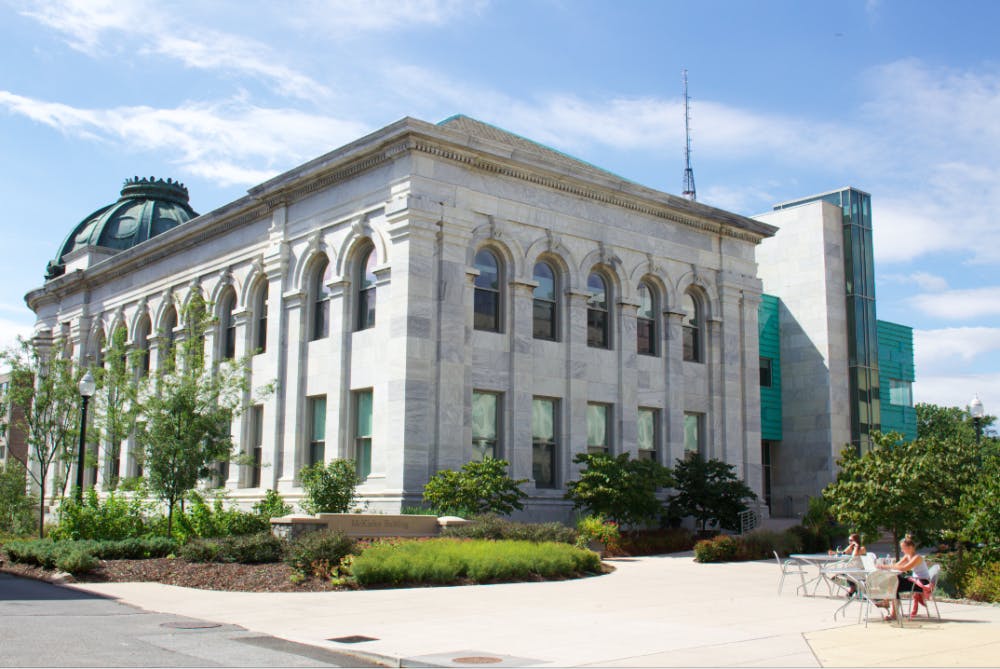Student staff in the School of Communication are raising concerns about reduction in staff numbers and scheduled hours, as well as lack of training.
Current student workers said they feel that this reduction in staff may have negative effects on classroom and equipment assistance and may lead to a cut of student staff altogether. Tristan Au, a senior in SOC, said that he doesn’t know exactly how many student workers were cut, but that the number is “significantly less than before.”
According to Au, who works in the School’s equipment room, known as the Cage, student staff usually undergo training for their positions at the start of the academic year. In 2022, production staff were trained on operating studio equipment “like the TV camera, the broadcast camera and the audio.” This training lasted two days, and students were compensated for that time.
This year however, there was no training for student staff at all.
Former media services manager Erin Eaton used to oversee and run the training for student workers. Eaton had previous experience in broadcasting and “thought it was really important to train people.”
“Some SOC offices have reduced staffing this academic year, for a variety of reasons, including new limitations on the number of students with federal work-study awards SOC is able to hire and reduced need,” said Jasmine Pelaez, an internal communications manager for the University.
“In one specific case, the SOC technology team had an uncommonly high level of student employment in spring 2023 because SOC was introducing new technology in the classrooms during a time when our full-time technology specialist position was vacant,” Pelaez said. “This fall that Office has returned to a standard level of student employment.”
According to Au, one of the big changes in scheduling is that the usual weekly schedule, which used to provide students with a set amount of hours, is mostly full of open shifts available for students to pick up.
“Scheduling has been different because they’ve had to reduce [scheduled] hours,” Au said.
Ja’Von Hill, a former information technology specialist at American University, oversaw the scheduling of student staff. According to Hill, schedules are subject to “approval to hire a certain amount of students for a certain amount of days.”
“It’s important for students to be able to work here. That’s where they get their experience,” Hill said. “Student work keeps this place running.”
“I have to get approval before I can give out hours or hire students,” Hill said. “It’s not like students don’t want to work, they want to work. It’s just availability I’d say.”
While earning her Master’s at AU, Hill said that working as a student worker at SOC gave her both the experience and “ability to fund her creative ideas, which is very necessary to do.”
The Cage is open Monday through Friday from 9:30 a.m. to 6 p.m., and on Saturdays from 10 a.m. to 2 p.m. Normally, it is staffed with two student workers Monday through Friday and one on Saturday, in addition to two SOC staff members. Students working in the Cage assist with checking out equipment, as well as repairing and resetting any equipment that is checked back in.
Au feels that the most helpful part of the students working at the Cage is their ability to advise students based on their personal experience. But due to staff reductions, there have been more instances of only one or no students working in the Cage.
While Au doesn’t think this poses much of a problem yet, he pointed out that it has potential to worsen as the semester continues.
“Towards the end of the semester, you have so many projects and people wanting to get out equipment,” Au said. “We’re not seeing it right now but I have a feeling it’s going to be pretty hectic.”
Student workers also assist in the Media Innovation Lab with various broadcast classes such as Advanced Broadcast Journalism or Television Studio Production. They also work in the production crew during class tapings of District Wire News.
“The journalists aren’t manning the camera, [they] aren’t doing audio, they aren’t managing the switchboard and directing and doing the show,” Au said. “[Student workers] are.”
Au says that he worries about the future of student workers at SOC, especially now that “people who stand up for student workers and know that their job’s important are leaving.”
“We won’t exactly have somebody in our corner, you know what I mean?” Au said. “So if they ultimately cut all SOC student workers … there’d be no one to push back on that.”
Editor’s Note: Tristan Au is a former Life managing editor for The Eagle.
This article was edited by Walker Whalen, Jordan Young and Abigail Pritchard. Copy editing done by Isabelle Kravis.





